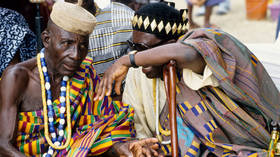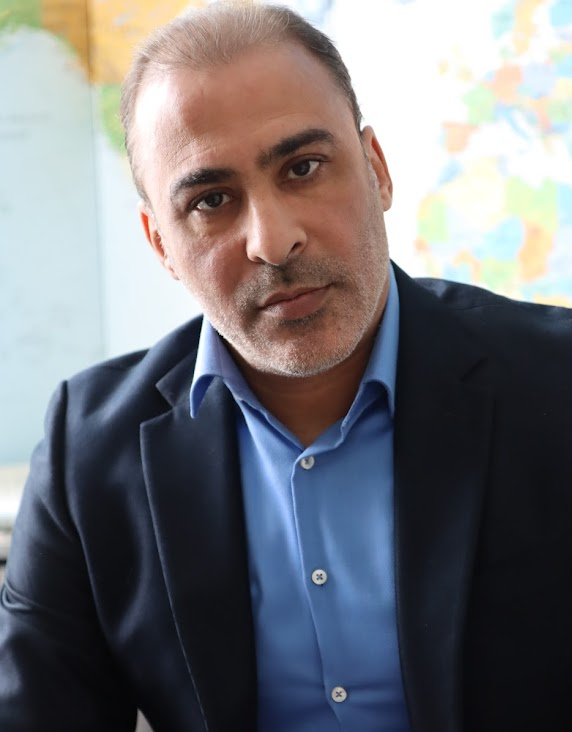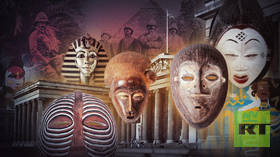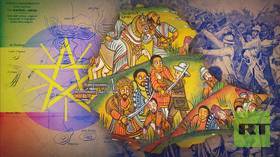Indigenous democracy: Why Africa should reject the Western way

In the discourse of global governance, Western democracy often stands as the epitome of political organization and representation. Yet, across the African continent, there exists a critical perspective on Western democratic models.
Many Africans, informed by their rich tapestry of tradition, history, and social structures, believe in the necessity of re-evaluating Western democratic paradigms and advocating for forms of governance that are more rooted in African realities. This critical view stems from a deep-seated belief that Africa should develop its own forms of democracy, inspired by indigenous practices, religions, traditions, and communal values.
At the heart of the African critique of Western democracy lies the recognition of the dissonance between imported political systems and the diverse socio-political landscapes of African nations. Western democracy, often characterized by ultra-individualism, elitist power structures, and a focus on “progressivist” values, may not fully resonate with the communal ethos prevalent in many African societies. In contrast, traditional African governance systems, such as those found in various kingdoms, chiefdoms, and tribal structures, prioritize consensus-building, communal decision-making, and the integration of spiritual beliefs into governance.
One of the primary reasons many Africans hold on to traditional ways of governance is the historical context of colonialism and its enduring impacts. The imposition of Western political systems during the colonial era disrupted pre-existing structures of governance and often marginalized indigenous institutions. This historical legacy has left a profound imprint on African societies, fostering skepticism toward Western models and a yearning to reclaim and revitalize indigenous governance practices.
Moreover, African traditional systems are often viewed as more inclusive and participatory, encompassing a broader spectrum of voices within the community. Decision-making processes in traditional settings typically involve consultation with elders, community leaders, and spiritual authorities, ensuring that diverse perspectives are considered and a consensus is reached.
This contrasts with the hierarchical nature of many Western democratic systems, which can further marginalize disenfranchised groups and perpetuate power imbalances. African religions and spiritual beliefs also play a significant role in shaping the concept of governance and policy-making on the continent. Indigenous belief systems often emphasize interconnectedness, reverence for nature, and collective responsibility.
Many Africans argue that incorporating these values into governance structures can lead to more sustainable and holistic approaches to development, as opposed to the often utilitarian and anthropocentric outlook of Western political frameworks.
African leaders of national liberation, from Patrice Lumumba to Gamal Abdel Nasser and Muammar Gaddafi, always attacked the economic inequality and liberal/neoliberal policies in the West which prioritize market-driven growth and privatization. In many African countries, these policies have exacerbated economic hardships, widened the gap between rich and poor, and perpetuated dependence on foreign aid and investment. This economic disparity undermines the democratic ideal of equal opportunity and social justice.
There is also the issue of Western values’ incompatibility with African cultural diversity. Western democratic norms and practices may not always resonate with the cultural diversity present in African societies. For example, issues such as LGBTQ+ rights, gender-centred divisions and secularist policies of state building may clash with traditional and national beliefs and norms in certain communities. This cultural incompatibility can lead to tensions between progressive democratic principles and local customs, potentially undermining social cohesion and stability.
Furthermore, African history is replete with examples of sophisticated governance systems that predate colonial rule. Kingdoms such as the Mali Empire (c. 1226 to 1670 AD), the Ashanti Empire (1701-1901 AD), and the Great Zimbabwe civilization (11th century- 15th Century AD) thrived through systems of governance that combined political authority with cultural and economic institutions.
They stand as remarkable examples of African societies that experimented with diverse forms of democratic governance, challenging conventional narratives of autocratic rule in pre-colonial Africa. The Mali Empire, renowned for its wealth and power under leaders like Mansa Musa, employed a system where power was decentralized among local rulers and their tribes, fostering a sense of participation and representation among its citizens.
Similarly, the Ashanti Empire, with its complex political structure and emphasis on consensus-building through councils of elders and popular assemblies, exemplified a form of participatory democracy that allowed for the expression of various viewpoints within society.
Meanwhile, the Great Zimbabwe civilization, known for its impressive stone structures and sophisticated trading networks, is believed to have operated under a system where decision-making was distributed among different levels of society, suggesting a form of decentralized governance and inclusion of traders, craftsmen, landowners and soldiers.
These examples challenge the misconception that democracy is a foreign concept to African civilizations, highlighting instead the rich history of democratic experimentation and innovation on the continent.
Since the 1950s, authentic experiments in African grassroots democracy conducted in Egypt, Tanzania and Liby have produced valuable outcomes worthy of thorough examination and advancement. In Egypt during the 1950s and 1960s, the widespread establishment of workers’ unions, farmers’ associations, and the democratic redistribution of arable land resulted in significant participation from previously marginalized groups in the political decision-making process.
Similarly, in Tanzania, Julius Nyerere – under his philosophy of Ujamaa (fraternity/familyfood in Swahili) – amalgamated ideals from African religion, tradition, and community to spearhead a movement of democratic involvement across various sections of the newly liberated and unified Tanzanian society.
Meanwhile, in Libya, Gaddafi employed a blend of Islamic tradition, particularly Shura (popular consultation), tribalcouncils, and a non-representative Direct Democracy approach to construct his vision of a new democratic alternative for the Global South.
Drawing inspiration from these historical and contemporary precedents, advocates for African-centred democracies argue for the adaptation and modernization of indigenous governance principles to suit contemporary challenges.
In recent years, there has been a growing movement across Africa to reclaim and reinterpret traditional governance practices. Initiatives such as the African Union’s Agenda 2063 emphasize the need for home-grown solutions to the continent’s developmental challenges, including governance reform.
Specifically, Agenda 2063 paints a vision of a continent where a shared commitment to good governance, democratic principles, gender equality, and human rights prevails. The African Union collaborates closely with its member states to craft and execute policies aimed at fostering robust, well-governed institutions. These efforts entail enacting legislation to ensure active participation of African citizens in policymaking and development endeavors, while also prioritizing the creation of safe and secure living environments.
To bolster the realization of these goals, the AU has instituted various organs focused on upholding good governance and human rights across the continent. These include the African Commission on Human and Peoples’ Rights (ACHPR), the African Court on Human and Peoples’ Rights (AfCHPR), the AU Commission on International Law (AUCIL), the AU Advisory Board on Corruption (AUABC), and the African Committee of Experts on the Rights and Welfare of the Child (ACERWC).
Countries like Ghana and South Africa have incorporated elements of indigenous governance into their legal and political frameworks, recognizing the importance of cultural heritage in shaping national identity and governance structures. Resilient and time-honoured democratic mechanisms such as Councils of Elders, Community Assemblies, Rotation of Leadership, Customary Law, and Dispute Resolution are experiencing a resurgence in African intellectual and political discourse.
In Ghana, one prominent example of incorporating elements of indigenous governance into the legal and political framework is the institution of chieftaincy. Traditional leaders, known as chiefs, hold significant authority and influence within their respective communities. Their roles often include mediation of disputes, preservation of cultural heritage, and consultation on local governance issues. The chieftaincy system is recognized and respected by the Ghanaian government, with chiefs playing active roles in decision-making processes at the local level.
Another notable example of incorporating indigenous governance elements, in South Africa, is the recognition of customary law within the legal system. Customary law encompasses the traditional practices, norms, and customs of various indigenous communities. The Constitution of South Africa acknowledges the importance of customary law and provides for its recognition and application in certain matters, particularly relating to family law, inheritance, and land tenure. This recognition ensures that the legal system accommodates the diverse cultural practices and values of South Africa’s indigenous communities.
Engaging discussions on these topics are taking place on social media platforms and within the halls of African parliaments. I had the personal privilege of actively participating in and leading several of these discussions between 2009 and 2010. During this time, my Jamahiri Media Centre (a then budding Global-South media project in Tripoli, Libya) hosted the African Youth Conference, where we advocated for and promoted African democracies, diverging from imported neo-liberal Western democratic models.
Critics of the African-centric approach to democracy often cite concerns about potential regression into authoritarianism or the exclusion of minority voices. However, proponents argue that embracing African traditions does not imply a rejection of democratic principles but rather a reimagining of democracy that is more inclusive, participatory, and reflective of local contexts.
In fact, the African critical view of Western democracy reflects a profound desire to reclaim agency over governance and policy-making processes. By drawing upon indigenous traditions, religions, history, and social structures, many Africans advocate for the development of democratic models that resonate with the continent’s unique identity and address the complex challenges it faces. As Africa continues to assert itself on the global stage, the debate over the future of democracy on the continent will remain pivotal in shaping its political landscape.
The statements, views and opinions expressed in this column are solely those of the author and do not necessarily represent those of RT.

















